Check out our April 20-28 tour in the Bay Area of the United States!
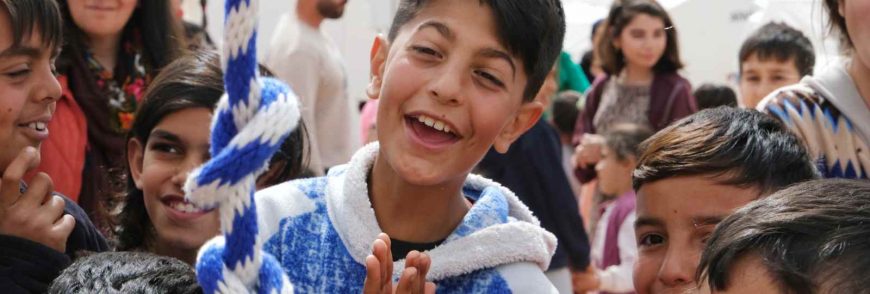
From the Clown’s Perspective: Why Kids’ Right to Play Matters
Last month, we talked about clowns who defend kids’ right to play in Zimbabwe. But you might wonder why the right to play matters so much.
And why does play need to be defended in areas of crisis?
Clowns who have witnessed the transformative power of play help me answer these questions in this second post of three in a series about the right to play.
Why Does Protecting Play as a Human Right Matter?
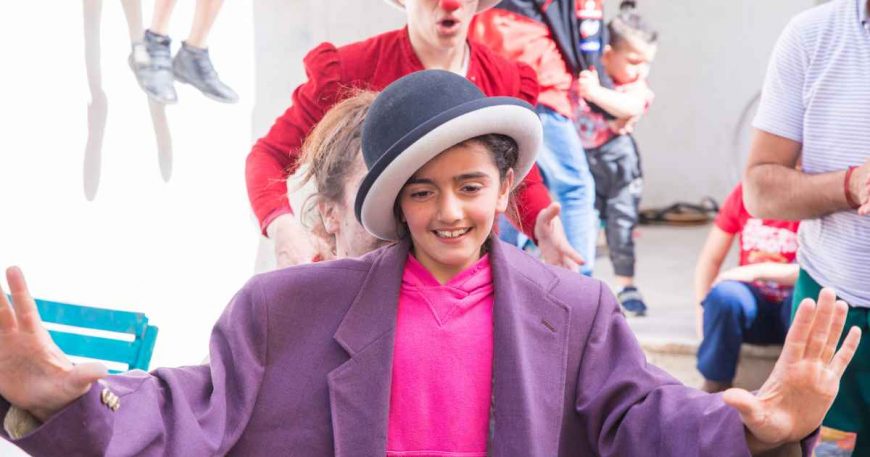
Children need the freedom and time to play. Play is not a luxury. Play is a necessity.
Kay Redfield Jamison
You may have heard that play is helpful for brain development. We’re going to talk about that, and we’re going to talk about a few less conventional ideas of why play matters.
Ready? Game on!
Your Brain is a Fantastic Playground
Albert Einstein said, “The measure of intelligence is the ability to change.” But how does your brain become adaptable?
Play.
Imagine your brain as a fantastic playground. The more you play on the playground, the more moves and tricks you learn. In the same way, play helps your brain respond with more nuance to situations that arise.
It’s all about the prefrontal cortex, a recently evolved (just 30 to 19 million years ago 😉) area at the front of your brain that serves your most complex thinking.
When you play, your brain’s prefrontal cortex refines its ability to regulate thoughts, actions, and emotions. That means that you’ll be able to handle tricky situations with greater ease.
Play-based brain development is especially important for those who have experienced a crisis, as we’ll talk about later.
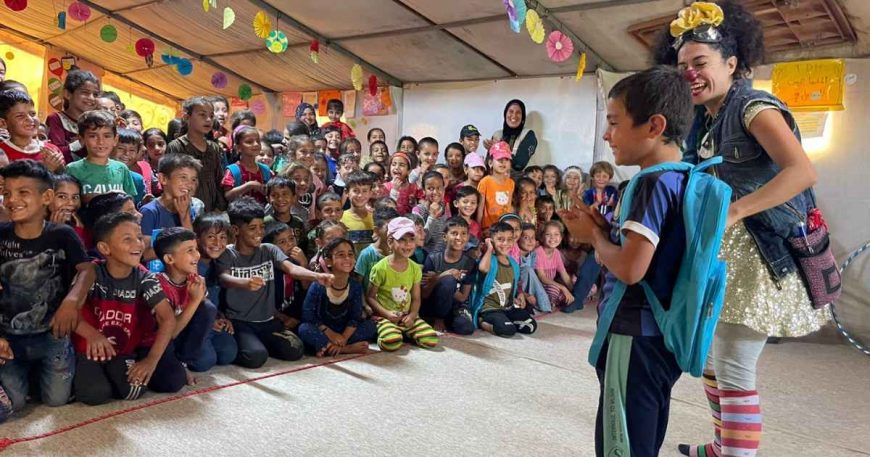
Clowns’ Warning: Don’t Corrupt Play
Clowns will be the first to tell you that play’s worth extends far beyond brain development (and related discussions of educational gains). To limit play’s value in this way is to degrade it. Let’s flip that, and unearth play’s multifaceted and expansive qualities.
Conversations about play often overlook the social-emotional ways that play matters.
According to a 2019 study of humanitarian clowning, clown performance and post-performance play
- Treats failure as a right, and shows that it’s necessary for learning
- Strips away social roles and norms
- Exposes the audience to their self, free from normative social roles
- Increases self-awareness
- Acts as an interlude from real life
- Encourages a sense of community
- Facilitates relief of stress and anxiety
- Provides human connection
- Gives people lasting memories of joy
We don’t have a joy-o-meter. Rather, we have records of personal communication that describe the joy and relief children and adults feel after attending a CWB event.
“I’ve never had this joy before. I am very happy!”
– A young boy at the Center for Sudanese Migrants, Egypt
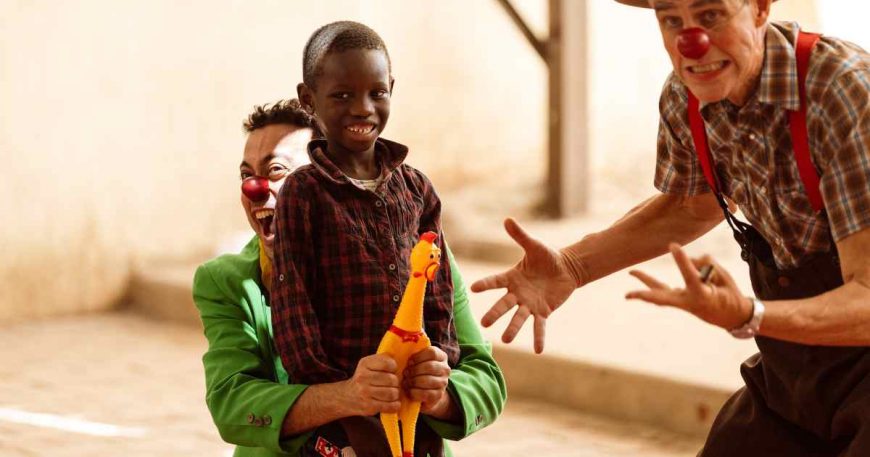
“It’s so good that you’re here because there’s nothing for the kids in Islote. Not even a park. So they’re happy you’re here. Before you even start, it’s golden just to be here. It brings the community together.”
– A young mother, Puerto Rico
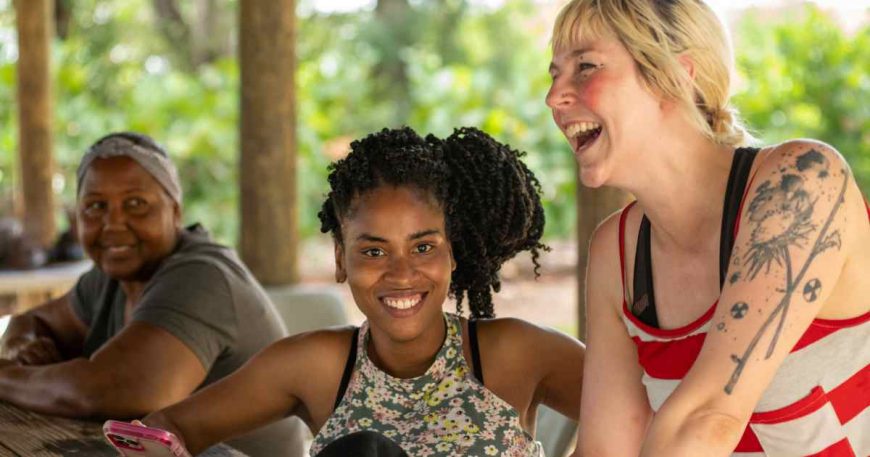
“In Karantina, one child found us wherever we were performing in the area. He told one clown that he’d been seeing the show in his dreams every night.”
– Sabine Choucair, Lebanon
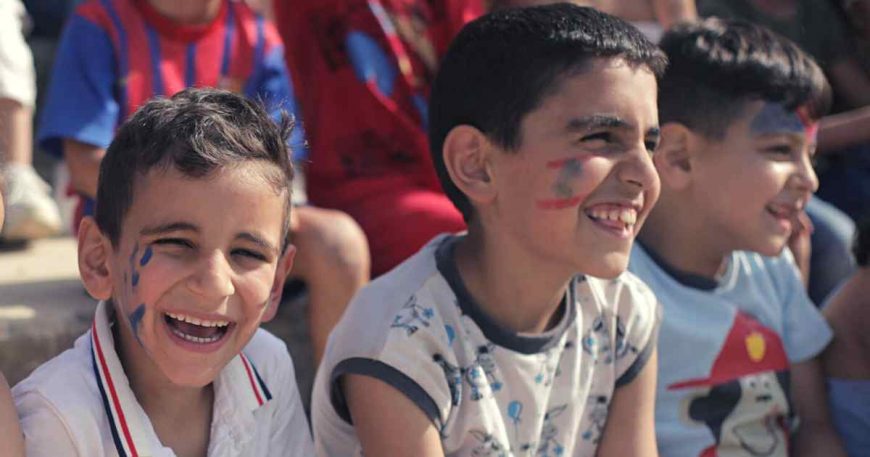
“Before the clowns came, the children played war. Now they play clown.”
Jordan, Feedback given to CWB–Sweden following a tour
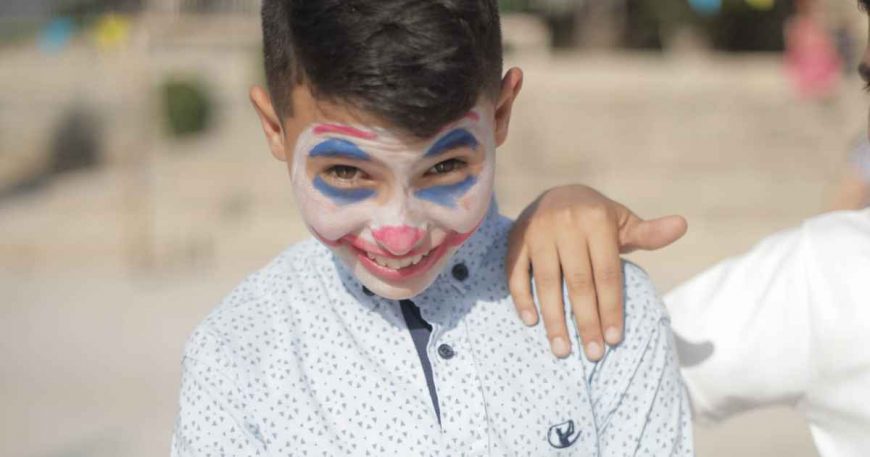
Can Play be ‘Purposeless’?
When the outcome doesn’t matter as much as the play itself, we call this play for play’s sake (a super technical term). CWB celebrates this kind of play, because it is about the processes, experiences, and feelings that occur during play — not the results.
During play for play’s sake, imagination and curiosity lead exploration. Children (and adults) are free to create as they wish.
Play for play’s sake builds confidence, agency, and a sense of ‘I am worthy.’
Experiencing displacement can feel like the world doesn’t care about your ideas, instincts, or interests. And even as you’re forced to adapt to a different lifestyle, community spaces rarely feel welcoming and loving.
Holding on to the value of play, the value of aspiration and imagination is, in a way, counter-culture.
America Ferrera, Honduran-American actor, producer, and director
‘Not Even a Park’: Defending The Right to Play for Children in Crisis
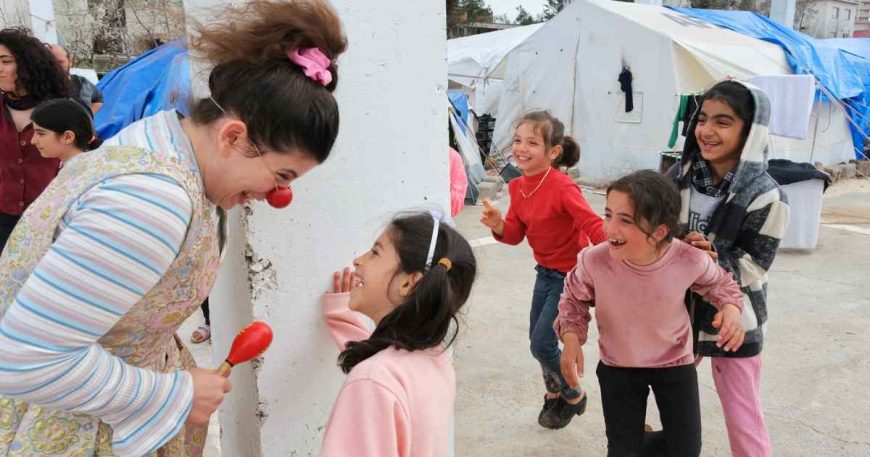
To recap, play is fundamental to childhood because
- It’s key to healthy brain development
- It supports a range of social-emotional outcomes, including the experience of joy
- We want children to love themselves
CWB defends the right to play for children who experience displacement because they are both uniquely in need of play and uniquely distant from play opportunities.
Play Matters in Humanitarian Settings
Children experiencing displacement have lost their homes and may have witnessed violence or death. On top of these traumas, their current living situation may be dangerous or exploitative.
Disruptions to education, lack of nurturing spaces, and psychological neglect complicate survivors’ lives.
And these children still want to play and will play, given the time and a safe space.
Not only are these children capable of quality play experiences, but play may be their only available path to recovery from their experiences.
The Play Opportunity Gap
Article 31 of the UN Convention on the Rights of the Child protects all children’s optimum development through play.
However, a consistent problem found in humanitarian settings is a lack of play-friendly spaces.
Play-friendly spaces “could be a tent, a fenced-off area under the shade of a tree, or a room used specifically for this purpose, but it should always be safe and accessible to children of different genders, ages and abilities.”
When CWB clowns arrived in Turkey following the 2023 earthquake, the clowns worked among tents because play areas had yet to be established. In community after community, children were ready to play and laugh after six weeks of rubble, food lines, and mourning.
At Maras Avşar, an earthquake survivors camp in Kahramanmaraş, Türkiye, CWB clowns heard kids explaining to one another that we were foreigners coming from very far away — for them.
When it was time to leave, they didn’t want us to go.
Conclusion
The right to play matters because play is fundamental to childhood.
Remembering that at least 40% of the (official) 108 million refugees are under the age of 18, the enormity of ensuring that every child plays can feel overwhelming.
How can you help?
In the last post of the series, we’ll share ways you can help protect the right to play. Spoiler alert: One thing you can do right now is to make a donation to Clowns Without Borders. Just $11 can change a child’s life forever as they find themselves at their first clown show.

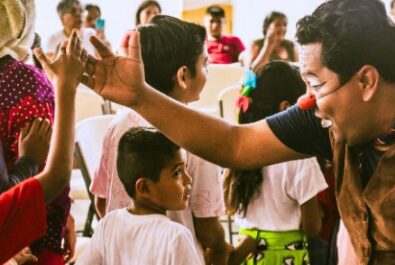
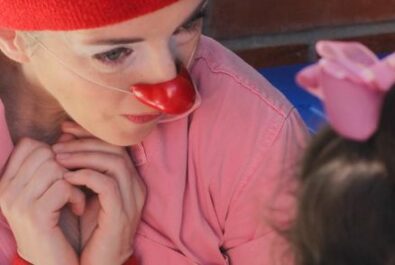
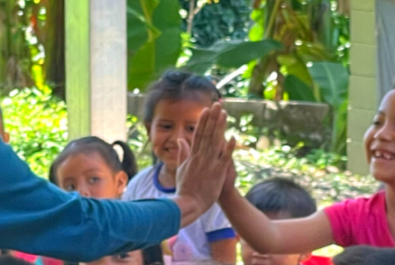
I love this article…well done and waiting for the next ones…who is the author (no citation but I’m half blind and can’t read)…According to Dr. Johan Huizinga the author of Homo Ludens one of the rules of play is that you can only play when you feel safe…In other words if I understand you can only play when you feel safe and you feel safe when you play ! What a good way to promote psychological health…viva les Clowns Without Borders !!!!
Hi Kevin! I’m glad you enjoyed the post. I may just have to incorporate your thoughts into the next one! Also, we’re making website improvements, so I hope you’ll soon find the posts easier to read.
Hey Kevin, Maggie Cunha, MPH wrote this one. She has a Masters in Public Health in Community Health Education, and while she never imagined she’d be working for a bunch of clown, she can’t deny that laughter is a great healing tool. You might also love this post about the benefits of laughter.
Thanks for this blog Maggie! I love how you point out that play is beneficial to brain development. It is not just for emotional well being and relaxation, all of which are very important!
Thank you, Chip! You make a great point that maybe discussions of play and brain development are less common than the other points in the post. Does anyone else have an opinion about this?